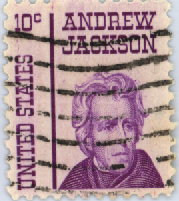Treaty of Ghent ends war
The United States suffered from internal divisions of the gravest kind. While the south and west favored war, New York and New England in general opposed it. The declaration of war had been made with army preparations still far from complete. There were fewer than 7,000 regular soldiers distributed in widely scattered posts along the coast, near the Canadian border, and in the remote interior. These were to be supported by the undrilled, undisciplined militia of the several states.
Hostilities began with a triple movement for the invasion of Canada which, if properly timed and executed, would have brought united action against Montreal. But the entire campaign utterly miscarried and ended with the British occupation of Detroit. While action had gone ill on land, however, the navy had, in a measure, restored American confidence. The frigate, Constitution, Captain Isaac Hull in charge, met the British Guerriere southeast of Boston on August 19, and captured her after a fight of thirty minutes, Hull reducing the enemy ship to complete wreckage. Two months later, the American sloop Wasp met the British sloop Frolic and demolished her entirely. This telling work of the navy took the world by surprise. In addition American privateers swarming the Atlantic captured five hundred British vessels during the fall and winter of 1812-13.
The campaign of 1813 centered about Lake Erie in New York state. General William Henry Harrison had led an army of militia, volunteers, and regulars from Kentucky with the object of reconquering Detroit. On September 12, news reached him, while he was still in upper Ohio, that Commodore Oliver Hazard Perry had annihilated the enemy's ships on Lake Erie. Two days before, Perry had come upon British vessels and, after two and a half hours of heroic action, thrilled the country with his dispatch, "We have met the enemy and they are ours." Thereafter the lake remained in American hands. Harrison was now on the offensive and, in less than a month, upper Canada fell into American control. At the end of the year, however, the English still held Lake Ontario, and the next year and a half saw a series of land and sea engagements which made the military situation a virtual stalemate.
 The war was brought to a close by the Treaty of Ghent which was approved by the United States in February 1815. Day by day
during the treaty negotiations, both England and the United States gave up more and more of their demands, with the curious result
that in the final treaty neither side gained or lost. It merely provided for the cessation of hostilities, the restoration of conquests, and
a commission to settle boundary disputes. Not a word was said about impressment and neutrality rights, the causes for which the
war had been so dearly fought. The dramatic victory which a bizarre but formidable army of frontiersmen, under the fiery fighter,
Andrew Jackson, won at New Orleans over a strong British force gave the United States some real cause for exultation.
Ironically, this took place on January 8, 1815, after the peace treaty had been signed but before it became known in America.
The war was brought to a close by the Treaty of Ghent which was approved by the United States in February 1815. Day by day
during the treaty negotiations, both England and the United States gave up more and more of their demands, with the curious result
that in the final treaty neither side gained or lost. It merely provided for the cessation of hostilities, the restoration of conquests, and
a commission to settle boundary disputes. Not a word was said about impressment and neutrality rights, the causes for which the
war had been so dearly fought. The dramatic victory which a bizarre but formidable army of frontiersmen, under the fiery fighter,
Andrew Jackson, won at New Orleans over a strong British force gave the United States some real cause for exultation.
Ironically, this took place on January 8, 1815, after the peace treaty had been signed but before it became known in America.
As in every war, losses were devastating. Particularly so to a young and growing country was the loss of 21,000 sailors and 30,000 soldiers killed or injured. Added to that was the destruction of 1,400 ships and enormous financial losses. However, historians agree that the War of 1812 had one important positive result-the strengthening of national unity and patriotism. The fact that men of different states again fought side by side and that a Virginian, Winfield Scott, was the ablest commander of northern troops, added to the sense of national unity. Western troops fought alongside their compatriots from the eastern seaboard, and from this time onward, the west, always national in sentiment, grew in importance in American life.
Albert Gallatin, Secretary of the Treasury from 1801 to 1813, asserted that before the conflict Americans were becoming too selfish and too prone to think in local terms.
"The war," he said, "has renewed and reinstated the national feeling and character which the Revolution had given, and which were daily lessening. The people have now more general objects of attachment, with which their pride and political opinions are connected. They are more Americans; they feel and act more as a nation; and I hope that the permanency of the Union is thereby better secured."
